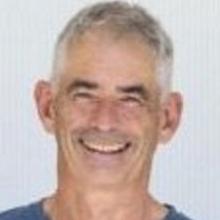
This week some of them, from very different fields of endeavour, have had their feats recognised, and we join in applauding them.
The Prime Minister’s Science Prize is a prestigious, and well-remunerated, award for a scientific discovery or achievement that has a significant economic, health, social or environmental impact on New Zealand or internationally.
Several Otago scientists have won the prize since its inauguration in 2009, and the latest to do so are members of the University of Otago Hereditary Diffuse Gastric Cancer Research Group.
These clinicians, researchers and scientists, in association with doctors from Tauranga Hospital and members of the McLeod family and led by Parry Guilford, have been studying why generations of McLeods were dying from stomach cancer at a young age.
Together they identified a mutation of the CDH1 gene and developed a test to identify it, a procedure which has allowed hundreds of people to become aware of their cancer risk and act accordingly.
An estimated 450 lives have been saved in New Zealand since 1995 thanks to the work of the project and its scientists know it. The majority of those people are known by its researchers and even members of the project itself have found that they have the defect and are now either under regular monitoring for symptoms or have had a full gastrectomy (stomach removal) to address the issue.
This is not a defect isolated to New Zealand and the study’s work is poised to be adopted internationally. Potentially there are 27,000 people in Europe and the United States of America whose lives may be saved over the next few years thanks to the Otago-driven research, and there will be many more elsewhere who will be able to recognise that they are at risk of an early death and take steps to live full and fulfilling lives.

It will be money well invested, as the programme has the potential to assist many thousands more people.
Earlier this week Dunedin enjoyed a moment in the sporting spotlight as Swimming New Zealand’s hierarchy came to the city to announce the country’s Olympic swimming team.
This is the sort of event which normally takes place in Wellington or Auckland, but SNZ made the welcome decision to bring the team naming to the South.
Quite apart from the fact that the Olympic team is a national team and such events should be spread about the country, it was fitting recognition that three of the team’s nine swimmers are from Dunedin — and that Dunedin coach Lars Humer will also be going to Paris as a national coach.
It was also a nice touch that the ceremony took place at the edge of the Danyon Loader pool, where Duncan Laing coached the double Olympic gold medalist.
World champion Erika Fairweather was the star of the show, and her many medals and records mean she will be among the favourites for her events in Paris.
Her Dunedin compatriots Kane Follows and Caitlin Deans are less well-known but each has worked incredibly hard to reach what are deliberately difficult qualifying times. Making that mark means that they can dare to dream.
Follows in particular has a remarkable story of determination and refusal to give up hope despite missing other international teams which sums up the Olympic spirit.
Otago will be watching Fairweather, Deans and Follows keenly and wishes them and the provinces other Olympians well.












